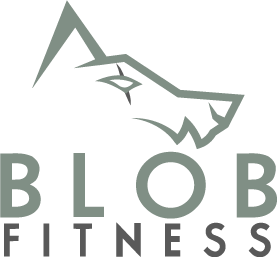
Most workout regimens last about 12 weeks or 3 months worth of time. In that time frame (depending on how hard you’re training), your body is going through a lot of physical stress. If you continue without any breaks, you may eventually start doing damage to your body. You won’t be able to lift as much weight or get the great results that you usually would. This is why most workout programs include a deload/rest week. Some programs incorporate time off while others lower weight and require continued gym compliance. Let’s go over the proper way to take a deload week and what would work best for you.
WHAT IS A DELOAD WEEK?
A deload week (also known as taper week or unload week) is time off from your normal workout regimen. The goal of a deload week is to allow your body to rest and recover, with the aim to lower the potential risk of injury and overtraining. A deload week is not a rest week. You aren’t taking 100% of your time off from working out. You will still be exercising but at a lower volume (Read “How to go about a deload week” to understand what volume is). Essentially, if you’re doing weight lifting, you want to lower your normal weight down to about 40% for lifts during this period of time.
WHEN TO IMPLEMENT A DELOAD WEEK?
FOLLOWING A PROGRAM
If you’re following a specific training program, then that program may already have a deload/taper scheduled into it. If this is not the case, then a rule of thumb is to take a deload week every 4-6 weeks. Usually when you’re doing a training program, your 4th or 5th week is your “peak” week. Your volume may have increased by a large margin. After this peak week, you would want to do a deload week.
NOT FOLLOWING A PROGRAM
If you’re not following a strict program, I would recommend paying attention to your training outputs and patterns of increases, decreases or a plateau of strength. If you’re seeing increases in strength and continue to do so, by all means continue on with your workout plan. However, once you start to realize that you may be plateauing, losing strength, or even getting injured more often you need to take a deload week. I want to reiterate though, after 4-6 weeks you should take a deload week. You will lower your risk of getting injured and plateauing.
VOLUME AND HOW TO GO ABOUT A DELOAD WEEK.
The whole point of deloading is to lighten the load/volume compared to your ordinary training routine. Studies have shown that decreasing your normal volume by 40 - 60% is key. Volume is the amount of weight you lift multiplied by the amount of reps, then taking that number and multiplying it by how many sets you did. For example. If I deadlifted 225lbs for 6 reps of 3 sets I would do the following equation : 3 * (225 * 6). (Sets * (Weight * reps)). This would be equivalent to 4050 lbs. So if you were deloading and decreasing by 40% of that you would do 4050 * 0.40 (Volume * Deload_Percentage) which would equal 1620lbs. It’s important to note that you have a few way of going about hitting that desired volume.
You can do one of the following:
- The same weight with less reps/sets
- Less weight with the same reps/sets.
- A mixture of both.
Each is outlined below.
SAME WEIGHT WITH LESS REPS/SETS
So if you were trying to reach a total volume of 1620 lbs and trying to lift the same weight with less reps/sets our workout would look something like this:
- 225lbs for 7 reps for 1 set
- 225lbs for 4 reps for 2 sets
- 225lbs for 2 sets for 4 sets
You can choose either one of those and you’re looking at around 1500-1800 lbs volume which is around the percentage we are trying to hit.
SAME REPS WITH LESS WEIGHT
Now if you were trying to do lighter weight for the same reps and sets, your option would be 90 lb - 100 lbs for 6 reps for 3 sets.
MIXTURE OF LESS WEIGHT AND LESS REPS/SETS
If you wanted to do a mixture of the both you can have something like:
- 185 lbs for 4 reps for 1 - 2 sets
- 165 lbs for 5 reps for 2 sets
- 150 lbs for 6 reps for 2 sets
Out of the 3 options, I usually recommend either a mixture of less reps/sets and less weight or same reps with less weight. However this depends on the individual and how you’re feeling. Since I always feel like you’re at a higher risk of getting injured if you’re training heavy, during my deload week I like to keep the reps/sets the same and lighten up the weight.
FINAL THOUGHTS
Deload weeks are a great tool to incorporate into your workout routine. You should try to implement them every 4-6 weeks or after a “peak week”. It’s important to note again, this is not an excuse to just not workout. You will still be working out, but just at a lower volume/frequency. Doing so can lead to greater benefits in your training, minimize a plateau, minimize risk or injury and more. If you haven’t implemented a deload week before, try it and take note on how you feel after your deload week.
References
BOSQUET, L., MONTPETIT, J., & ARVISAIS, D. (2007, August). Effects of Tapering on Performance: A Meta-Analysis : Medicine & Science in Sports & Exercise. Retrieved April 02, 2018, from https://journals.lww.com/acsm-msse/fulltext/2007/08000/Effects_of_Tapering_on_Performance__A.19.aspx
Get a Free Guide!
Similar Posts
Explore the pivotal role of using chalk when lifting. Find out why this can be the tool to increase your strength and help you reach your goals.
Learning to optimally rest between sets can give you the advantage you need to lift more and make better gains. Discover all the ways to do so.
Machines or dumbbells for hypertrophy has been a ongoing debate for so long. Find out which is better at effectively building muscle.



